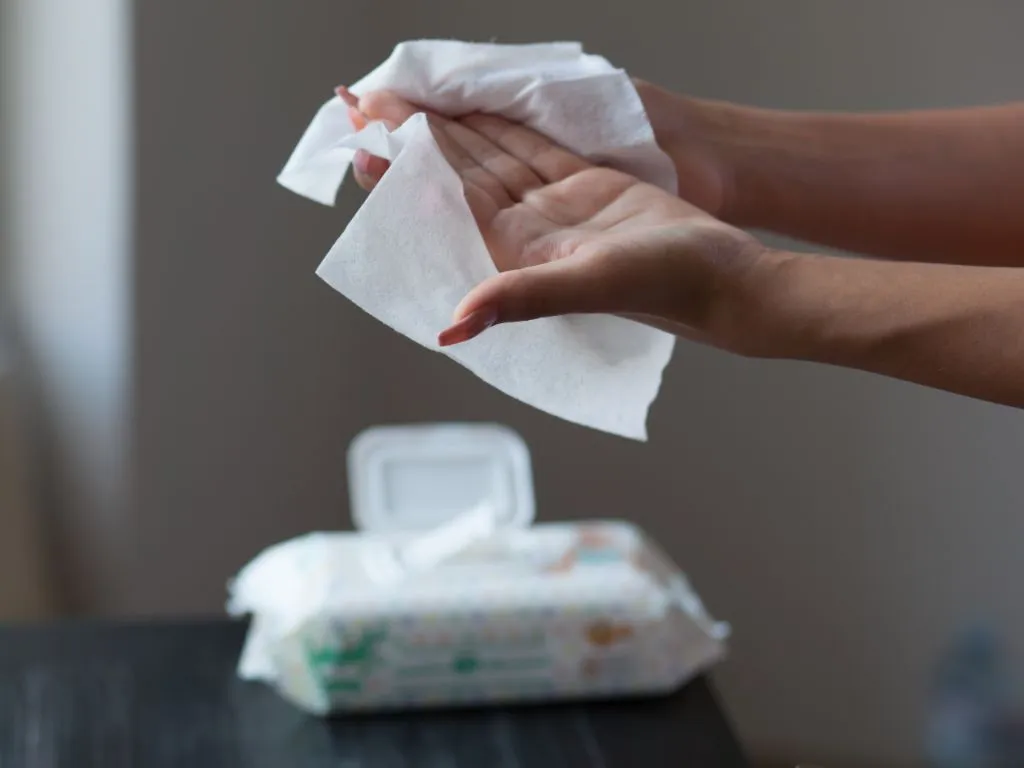News Details

New Regulation to Ban Wet Wipes Containing Plastic to Come into Force in England in 2027
On 18 November 2025, the UK government enacted the Environmental Protection (Wet Wipes Containing Plastic) (England) Regulations 2025 (S.I. 2025 No. 1218). These regulations are designed to prohibit the supply or offer to supply wet wipes containing plastic to end users in England. The regulations will come into force on 19 May 2027.
Under the regulations, any ‘business’ supplying wet wipes to end users in England will be barred from offering or supplying products that fall within the definition of ‘wet wipes containing plastic’. The definition of ‘plastic’ used aligns with the polymer definition in Article 3(5) of REACH Regulation (EC) No 1907/2006.
Key Exemptions
The regulations include several exemptions:
- Supplies made by registered pharmacies (or via online/distance selling by a retail pharmacy business) are exempt provided that certain conditions are met (for example: the wipes must not be visible to customers in-store unless requested).
- Supplies for medical purposes by or under the direction of a healthcare professional, or NHS appliance contractors, are exempt.
- Supplies to businesses or local authorities (rather than end users) are also exempt.
Enforcement and Sanctions
The regulations establish both criminal offences and civil sanctions. Contravention of the supply ban constitutes an offence, punishable by a fine on summary conviction.
In addition, local authorities are empowered to use a range of civil sanctions, including fixed monetary penalties (starting at £200 for specified offences), compliance notices, stop notices, enforcement undertakings, and penalties for non-compliance.
Regulators have powers of entry, inspection, sampling and testing to enforce the Regulations.
Review Mechanism
The Secretary of State is required to carry out a review of the enforcement regime within three years of the Regulations’ coming into force and conduct further reviews of the regulatory provisions every five years thereafter. A report to Parliament must be submitted after each review.
Impact and Significance
These regulations represent a significant step in the UK’s efforts to reduce plastic pollution, particularly from single-use items that contribute to micr-plastic contamination in the environment. The prohibition targets a class of consumer goods (wet wipes), which has been identified as a recurring source of plastic litter, blocked sewer systems and harm to wildlife.
The lead-in time for manufacturers, importers and retailers of wet wipes (until 19 May 2027) allows for the adjustment of product formulations or the transition to alternative materials. Businesses will need to scrutinise their product supply chains, labelling and marketing practices to ensure compliance.
Pharmacies and medical supply chains benefit from the exemptions, reflecting the necessary medical function of certain wipes. Local authorities will assume an important role in monitoring compliance and publishing information about enforcement actions.
According to the Explanatory Note, a full impact assessment of the effect on businesses and the voluntary sector has been published alongside the Regulations.
What to Watch
Industry stakeholders should look out for the following:
- Reformulation of wet wipe products to eliminate “plastic” as defined by the Regulations.
- Supply chain audits to identify any legacy stock that may become unsaleable after 19 May 2027.
- Guidance issued by regulators on the use of civil sanctions, and the expected standards for compliance notices and stop notices.
- The first review report, due no later than May 2030, which may lead to amendments or further regulatory action.
We acknowledge that the above information has been compiled from UK Government.

 Twitter
Twitter
